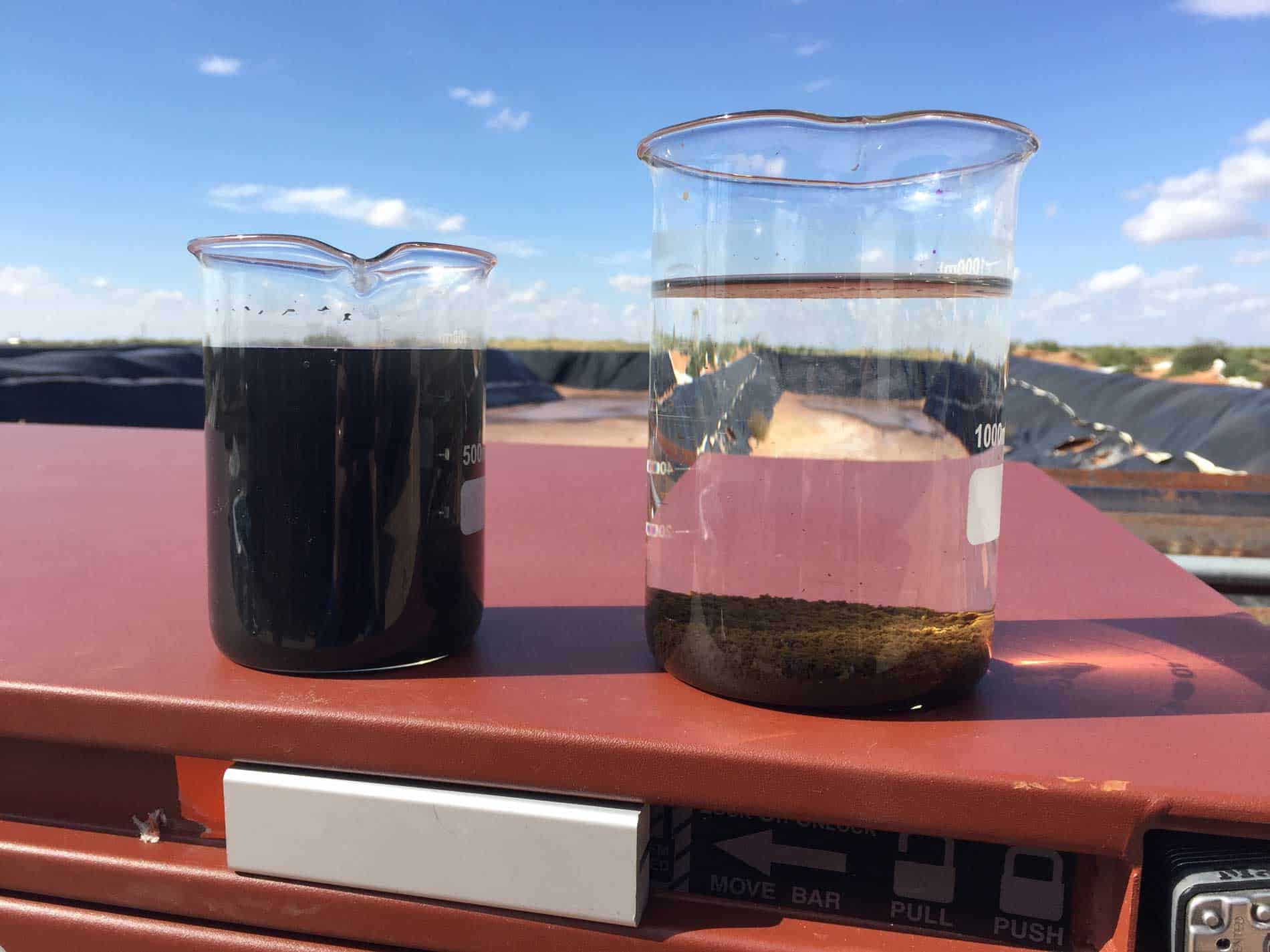UOP 603 Organic Content in Produced Water Test
The UOP 603 method is a standardized procedure widely recognized by the oil and gas industry for determining the organic content in produced water. This testing is crucial for ensuring compliance with environmental regulations, optimizing water treatment processes, and managing wastewater discharge standards. In this test, an extractive distillation process separates volatile organic compounds (VOCs) from non-volatile constituents, allowing for accurate quantification of organic matter. The UOP 603 method is particularly useful in assessing the quality of produced waters that have been used during drilling or hydraulic fracturing operations.
The testing begins with proper sample collection and preparation. Produced water samples are filtered to remove particulates and suspended solids, ensuring a clear liquid for accurate measurement. This step ensures that any organic content measured corresponds directly to the volatile components present in the water. Post-filtering, the sample is analyzed using an extractive distillation column. The column separates the water into two fractions: one containing the non-volatile constituents and another comprising the extracted organic compounds.
The extracted organic fraction is then quantified by measuring its weight or volume, depending on the laboratory's analytical capabilities. This method provides a precise measurement of the total organic carbon (TOC) content in produced water. The UOP 603 test results are typically reported as milligrams per liter (mg/L), offering a clear indication of the level of contamination present.
Compliance with industry standards and regulatory requirements is critical for operators working in oil and gas fields. By adhering to the UOP 603 method, laboratories can ensure that their test results are accurate and reliable, meeting the stringent demands of environmental regulations. This method helps identify potential issues early on, enabling proactive measures to mitigate risks and minimize impacts on local ecosystems.
The UOP 603 process is particularly advantageous for R&D engineers looking to refine water treatment technologies or for quality managers seeking to ensure consistent product quality. The test's precision makes it an indispensable tool in the continuous improvement of wastewater management practices within the oil and gas sector.
- Environmental Compliance: Ensures that produced waters meet environmental standards set by local, national, and international bodies.
- R&D Applications: Provides data essential for developing more efficient water treatment processes.
- Quality Management: Guarantees consistent product quality and compliance with industry benchmarks.
By leveraging the UOP 603 method, laboratories can contribute significantly to sustainable practices within the oil and gas sector. The test's accuracy ensures that operators have reliable data to make informed decisions regarding water management, leading to more effective resource utilization and reduced environmental impact.
Industry Applications
- Oilfield Water Management: UOP 603 helps in assessing the effectiveness of water treatment processes by quantifying volatile organic compounds present in produced waters.
- Hydraulic Fracturing Monitoring: The method can identify potential contamination from fracturing fluids, aiding in early detection and mitigation strategies.
- Environmental Impact Assessment: Provides critical data for evaluating the environmental impact of oil and gas operations on local water bodies.
- Compliance Audits: Ensures that operators meet regulatory requirements set by environmental protection agencies.
- R&D Innovations: Supports continuous improvement in water treatment technologies, enabling more efficient recovery of resources from produced waters.
The UOP 603 method is an integral part of the industry's efforts towards sustainable operations. By providing precise and reliable data on organic content levels, this test facilitates better decision-making processes across various operational aspects within oil and gas production.
Eurolab Advantages
EuroLab stands out as a leader in the field of oil and gas testing services. Our team of experts ensures that every UOP 603 test adheres strictly to international standards, providing clients with accurate, reliable results that are both repeatable and reproducible.
Our state-of-the-art laboratories are equipped with cutting-edge technology, including advanced distillation columns and precise analytical instruments. This allows us to deliver high-quality tests consistently, even for complex samples. Our team of experienced chemists and engineers ensures that each test is conducted under controlled conditions, minimizing the risk of errors.
EuroLab's commitment to quality extends beyond just our technical capabilities. We offer fast turnaround times without compromising on accuracy or precision. This allows clients to receive their reports promptly, enabling them to take timely action based on our findings. Additionally, we provide comprehensive reports that not only include raw data but also interpretative insights, helping clients understand the implications of their test results.
Our global presence and network of partner laboratories ensure that regardless of where you are located, you receive world-class service from a local team. This flexibility allows us to cater to diverse client needs while maintaining consistent standards across all our operations. EuroLab's reputation for excellence in oil and gas testing is built on years of experience and unwavering dedication to providing the best possible service.
International Acceptance and Recognition
The UOP 603 method has gained widespread acceptance across the globe due to its robustness and reliability. It is recognized by numerous industry bodies, regulatory agencies, and international standards organizations as a reliable means of measuring organic content in produced water.
The International Organization for Standardization (ISO), American Society for Testing and Materials (ASTM), European Committee for Standardization (CEN), and International Electrotechnical Commission (IEC) all acknowledge the UOP 603 method. Its international acceptance ensures that test results are universally recognized, facilitating seamless compliance with global standards.
Moreover, the UOP 603 method is endorsed by major regulatory bodies such as the Environmental Protection Agency (EPA) and Occupational Safety & Health Administration (OSHA). This endorsement underscores its importance in ensuring environmental safety and worker health. By adhering to this standard, operators can demonstrate their commitment to sustainable practices and regulatory compliance.
EuroLab's proficiency in conducting UOP 603 tests ensures that clients receive results that are not only accurate but also internationally recognized. Our laboratories maintain strict adherence to ISO/IEC 17025 accreditation, ensuring the highest level of quality and reliability in our testing services.





